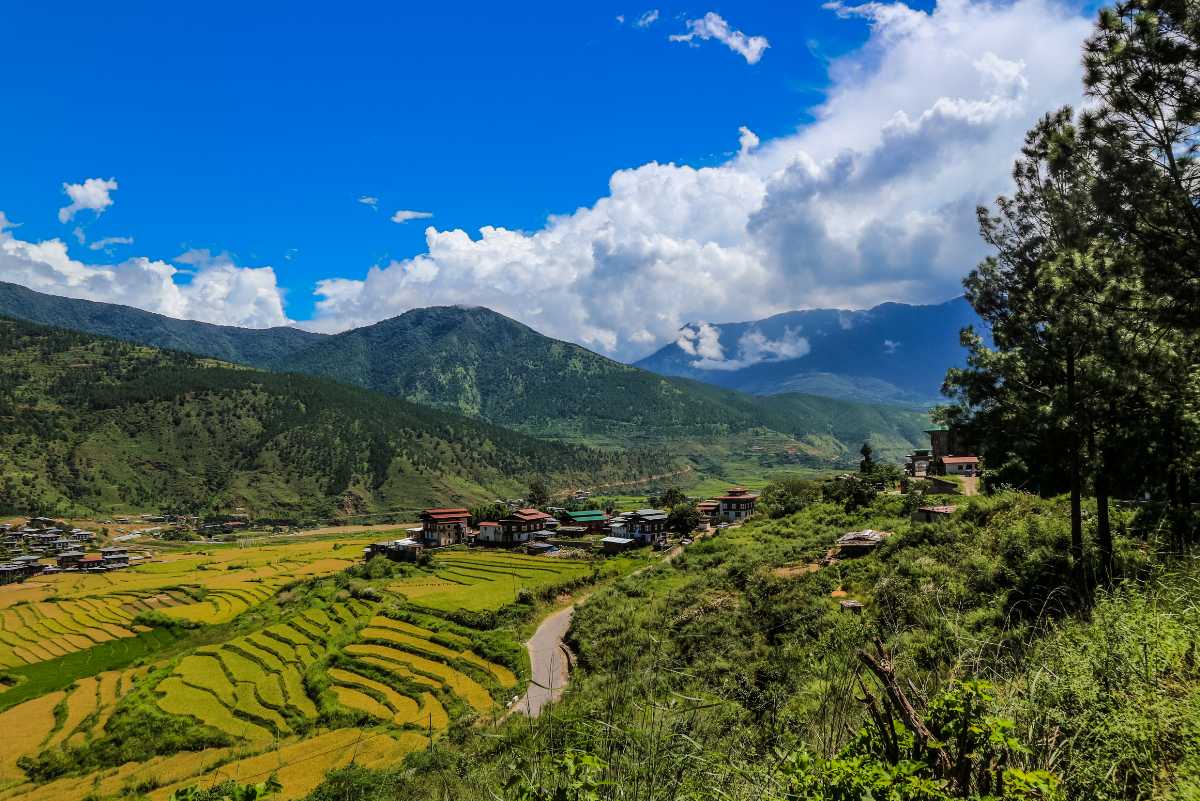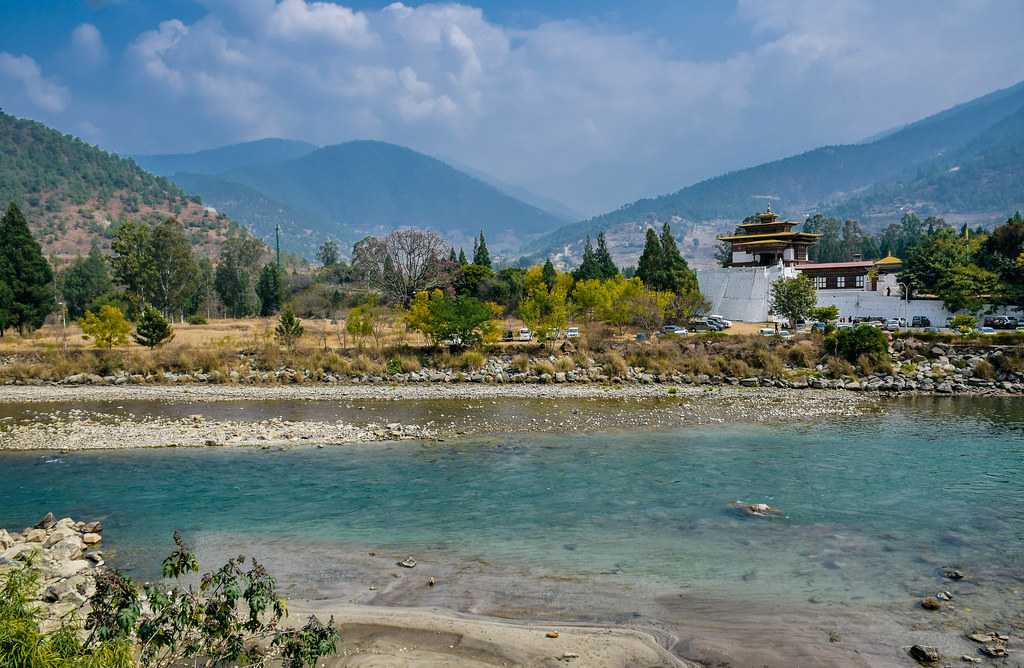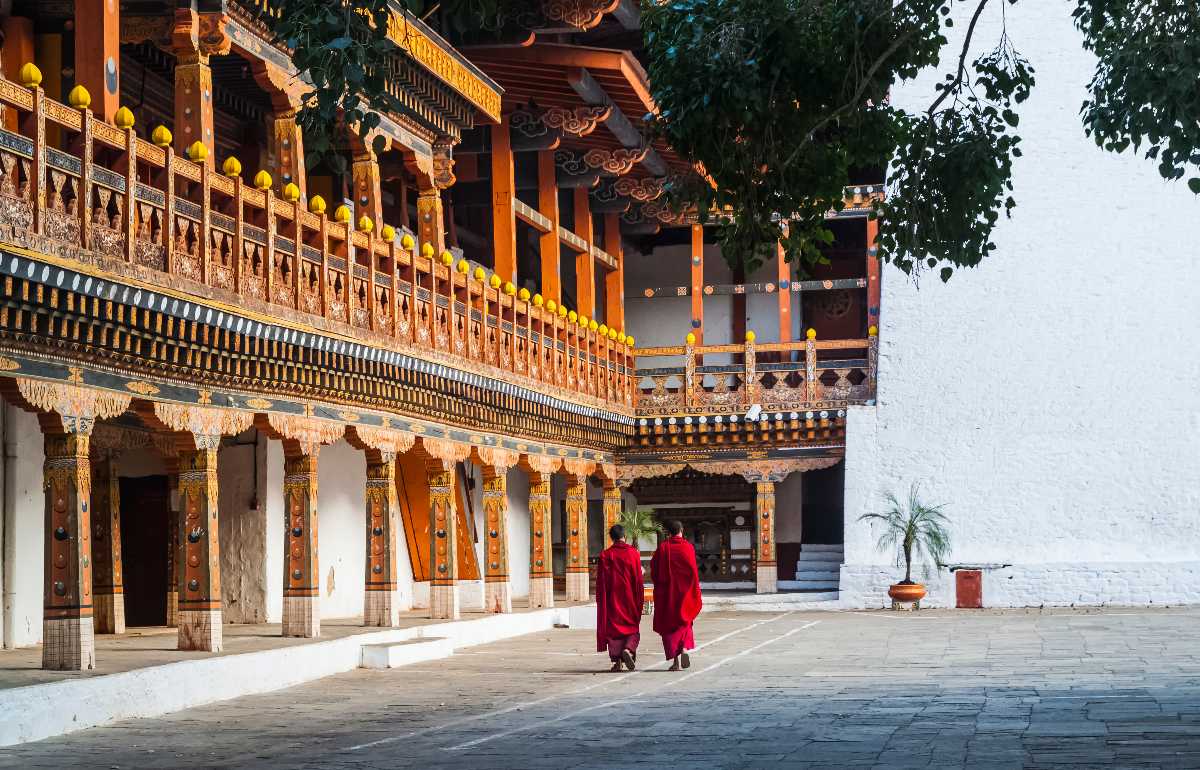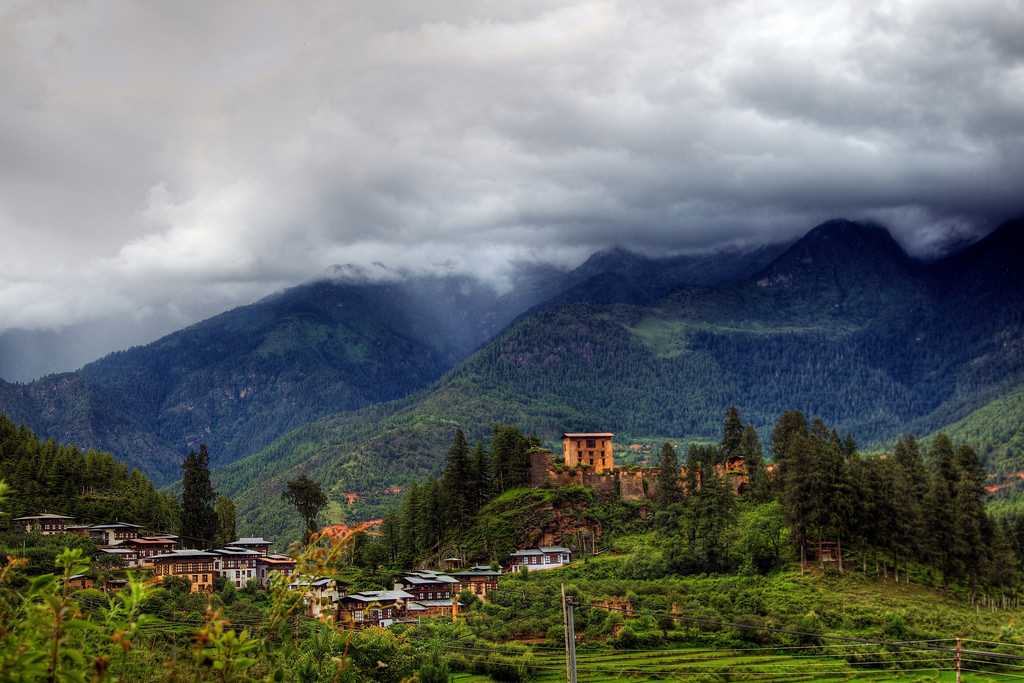Bhutan is a small, landlocked country in South Asia, nestled in the eastern Himalayas between China (to the north) and India (to the south, east, and west). Known for its stunning natural beauty and rich cultural heritage, Bhutan is often celebrated for its unique approach to development, emphasizing Gross National Happiness (GNH) over Gross Domestic Product (GDP).
Here are some key aspects of Bhutan:
- Geography: The country is characterized by its rugged terrain, with elevations ranging from subtropical plains in the south to glacial zones in the north. This diverse topography includes lush valleys, dense forests, and high mountain peaks, including the famous Jhomolhari and Gangkar Puensum.
- Culture: Bhutanese culture is deeply influenced by Tibetan Buddhism, which plays a central role in daily life and governance. The country is known for its colorful festivals, traditional architecture, and distinctive arts, including intricate thangka paintings and traditional dance forms.
- Government and Politics: Bhutan is a constitutional monarchy with a system that blends traditional practices with modern democratic principles. The king, known as the Druk Gyalpo, plays a significant role in governance, while a democratically elected parliament handles legislative matters.
- Gross National Happiness (GNH): Instead of focusing solely on economic growth, Bhutan measures progress through GNH, which encompasses nine domains: psychological well-being, health, education, time use, cultural diversity and resilience, good governance, community vitality, ecological diversity and resilience, and living standards.
- Tourism: Bhutan is known for its high-value, low-impact tourism policy, which aims to preserve its cultural heritage and natural environment. Visitors are required to travel with a licensed tour operator and pay a daily fee that covers accommodation, meals, and a guide.
- Language: The official language is Dzongkha, but English is widely used, especially in education and government.
- Biodiversity: The country’s varied climates and elevations support a wide range of flora and fauna, including endangered species like the snow leopard and the takin. Bhutan is also known for its commitment to conservation, with a large portion of its land designated as protected areas.
- Religion: The majority of Bhutanese practice Vajrayana Buddhism, and the country is dotted with monasteries and stupas that are important spiritual sites. There are also smaller communities of Hindus, particularly in the southern regions.



